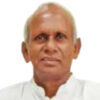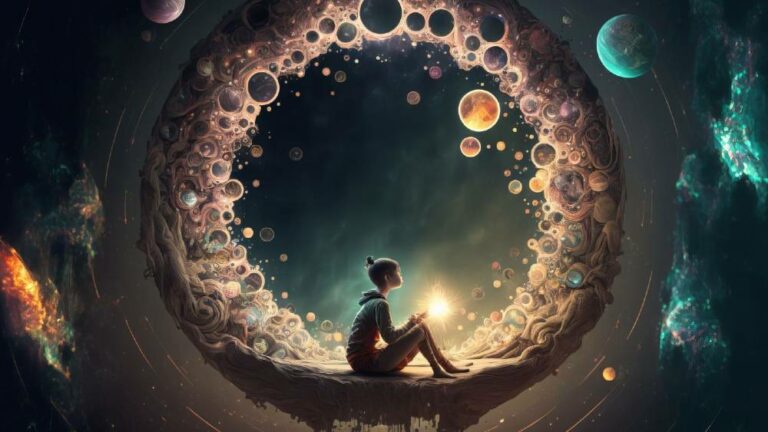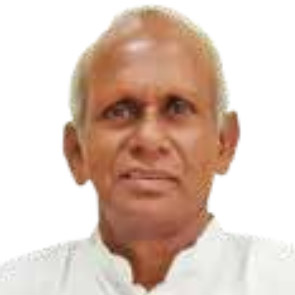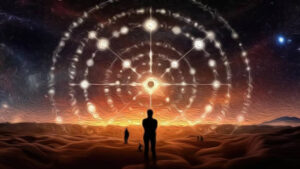The other day the speaker was confronted with a question in a meeting, how to find meaning in the meaningless world? The question itself is absurd. There are two things in the question. One is meaning and the other is calling the world meaningless. Both are ridiculous. Saying that the world has no meaning is as pointless as looking for meaning in that presumption. Who claims there is no meaning in the world?
If you believe that there is no significance in the world, then that is your perception—not anyone else’s. Furthermore, this perception is unfounded. If it is someone else’s perception rather than yours, then it is also invalid since it is someone else’s perception that cannot be independently confirmed. You are viewing the world through the eyes of another person. There is nothing like your perception. Every perception is tainted by somebody’s perception. You cannot form your perception in empty space unless you have already acquainted yourself with the others’ perceptions.
Even though you claim that this is your perception, you are still speaking from someone else’s perspective that has been ingrained in your consciousness. Thus, both presumptions are untrue. We all live our lives based on this fallacious belief. All of us live with presumptions. We lack the courage to face life and the outside world. Do you see what the speaker is emphasising?
Saying that there is no purpose for the world implies that we are all worthless and unsuitable to exist. It is absurd. The speaker refers to the world we live in as “a second creation” since humans made it and should not be confused with “the first creation,” which is the earth as a magnificent planet. Without “the second creation,” which we have built, life on our planet would not be feasible. Man has evolved to use his best brain—a trait not shared by any other creature—to adapt to his ever-changing surroundings. Since humans are more creative than other animals and will never stop coming up with new ideas, inventions, and discoveries, the “second creation” cannot be halted.
Second, when you set meaning for yourself or for someone, it becomes your goal. You create a value system around it, and you want to impose it on the world. It won’t function. When you create a value system that is the end of your life in the world because it is constantly subverted by another, another, yet another, and so on. It becomes endless. It gets never-ending. Give up looking for meaning in the world and meaning for your life. Give up passing judgment on life. We judge the world with our own little measuring sticks. These measuring sticks are biased, subjective, and arbitrary. You can never generate significance if you start looking for it with these measuring sticks. You can never begin to live. Give up creating meaning and get to life. Quit this foolishness.
You might argue that in human history scientists, artists, sociologists, historians, policymakers, economists, social activists, and politicians have tried to create meaning. True, in order to give the world significance, they all produced something and attempted to force it upon it. They were not entirely successful. But, each of these groups has contributed to the making of the world which cannot be ignored. With all their ideas, the world has been made and kept going with no constancy. Even if you don’t come out with newness, the world (the “second creation”) will keep going. It will not die unless you die.
Don’t get your head caught up in all this thinking about the meaning of life. Instead, just do the things that come your way; just accept all that happens to you without judging; just take things pretty well as if they had not happened to you; just keep your mind afresh with everyday washing off your clothes; just eat and sleep when the need arises; just be normal.
Once a young man went to an ordinary man and the conversation followed between the two.
‘You don’t seem to be a fool. But you always want to be wise. You cannot be both. You can choose either of the two. But one of the two will not stay until the other is totally abandoned,’ said the ordinary man.
‘I want to be wise,’ replied the young man.
‘Then admit you are a fool first’.
‘How do I know that I am a fool?’
‘It is simple. It’s because you aspire to be something other than what you are. In this world, everyone wants to be something other than what they are. You can never become wise as a result. You can become somebody, but you cannot become wise. Unless you drop all your efforts to become something or somebody, you can never be wise. Resisting to what life is, is a foolish thing, but for you it is a wise thing. That makes the difference between being foolish and being wise.’ Dumbfounded, the young man said nothing and walked away.





















